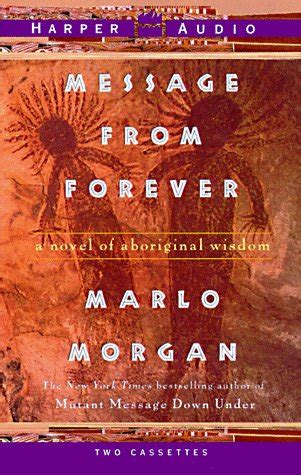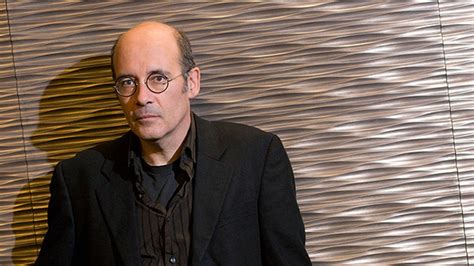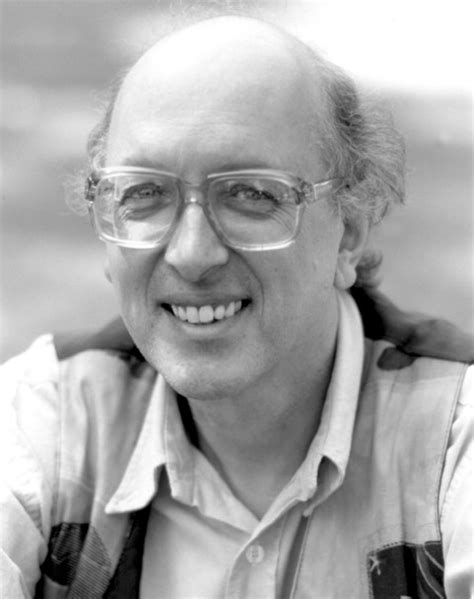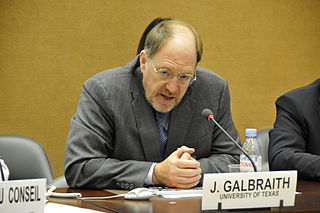Top 614 Celebrated Quotes & Sayings - Page 10
Explore popular Celebrated quotes.
Last updated on December 18, 2024.
The most successful revolutions aren't those that are celebrated with parades and banners, drums and trumpets, cannons and fireworks. The really successful revolutions are those that occur quietly, unnoticed, uncommemorated. We don't celebrate the day the United States Constitution was destroyed; it didn't happen on a specific date, and most Americans still don't realize it happened at all. We don't say the Constitution has ceased to exist; we merely say that it's a 'living document.' But it amounts to the same thing.
I was at art school that had quite a celebrated film course as well. I tried for that film course when I was 18, but they said I was too young. I tried this audio and visual design course instead. Two years later, I reapplied for that higher course, but they said I was still too young and to try in five years.
I'm grateful for the likes of Kundera, Murnane, Markson, Berger, and, in his recent work, Coetzee. But no matter how celebrated they are, critics still consider them askance. Elizabeth Costello, for example, is a great novel, but it got quite a critical panning when it was published. The complaint was that it was simply a book of speeches, without the machinery of conventional fiction. Markson's books are compilations of facts and alleged facts, very artfully.
'In his celebrated book, 'On Liberty', the English philosopher John Stuart Mill argued that silencing an opinion is "a peculiar evil." If the opinion is right, we are robbed of the "opportunity of exchanging error for truth"; and if it's wrong, we are deprived of a deeper understanding of the truth in its "collision with error." If we know only our own side of the argument, we hardly know even that: it becomes stale, soon learned by rote, untested, a pallid and lifeless truth.'
Then I celebrated my Wall of Books. I counted the volumes on my twenty-foot-long modernist bookshelf to make sure none had been misplaced or used as kindling by my subtenant. “You’re my sacred ones,” I told the books. “No one but me still cares about you. But I’m going to keep you with me forever. And one day I’ll make you important again.” I thought about that terrible calumny of the new generation: that books smell.
I have consciously sought after those things which make for value, order, richness, spirit and wonder, even though I am often unable to verbalize what I feel when I perceive something beautiful. Sometimes it's a pang or a sensation; at other times it is an awareness of joy and security or pure pleasure. In any event, it is a moment to be celebrated. Beauty justifies itself. The fact that it is beyond definition means nothing.
Where utopianism is advanced through gradualism rather than revolution, albeit steady and persistent as in democratic societies, it can deceive and disarm an unsuspecting population, which is largely content and passive. It is sold as reforming and improving the existing society's imperfections and weaknesses without imperiling its basic nature. Under these conditions, it is mostly ignored, dismissed, or tolerated by much of the citizenry and celebrated by some. Transformation is deemed innocuous, well-intentioned, and perhaps constructive but not a dangerous trespass on fundamental liberties.
The date will be the most memorable epoch in the history of America. I am apt to believe that it will be celebrated by succeeding generations as the great anniversary festival. It ought to be commemorated as the day of deliverance, by solemn acts of devotion to God Almighty. It ought to be solemnized with pomp and parade, with shows, games, sports, guns, bells, bonfires, and illuminations, from one end of this continent to the other, from this time forward forever more.
I think we have to change our perspective. I don't think life stops after 50 - if anything, it gets more and more exciting. For some reason, we don't honor or pay respect to aging. It's something that we look at as a negative, and yet every single person on this planet does it. I don't understand why it's not something that's celebrated, why there's some sort of an expiration date on who you are as a person worth watching and a story being told about you. It makes absolutely no sense.
During our journey there were two occasions that we celebrated by honoring someone's talent. Everyone is recognized by a special party, but it has nothing to do with age or birthdate - it is in recognition of uniqueness and contribution to life. They believe that the purpose for the passage of time is to allow a person to become better, wiser, to express more and more of one's beingness. So if you are a better person this year than last, and only you know that for certain, then you call for a party. When you say you are ready, everyone honors that.
It was part of war; men died, more would die, that was past, and what mattered now was the business in hand; those who lived would get on with it. Whatever sorrow was felt, there was no point in talking or brooding about it, much less in making, for form's sake, a parade of it. Better and healthier to forget it, and look to tomorrow.The celebrated British stiff upper lip, the resolve to conceal emotion which is not only embarrassing and useless, but harmful, is just plain commons sense
The reputation of a Don Juan gives to a man the most dangerous power. Wise virgins resist it, but foolish virgins frequently yield to the desire to take a celebrated lover from a rival - even from a friend. This emotion is a complex one, mad up of vanity, respect for another woman's taste, and the need to establish self-assurance by winning a difficult victory. Don Juan chose his first mistresses; later he was chosen.
When I was growing up, there was no one. There were very few black women in tech; there were very few black women in the fashion game. We didn't have our Grace Jones - Grace Jones was before my time. We didn't really have a lot of black women in electronic and punk who were celebrated in the same levels as, say, your big mega-superstars.
The scientific method is the ultimate elegant explanation. It is the ultimate foundation for anything worthy of the name "explanation". It makes no sense to talk about explanations without having a process for deciding which are right and which are wrong, and in a broad sense that is what the scientific method is about. All of the other wonderful explanations celebrated here owe their origin and credibility to the process by which they are verified-the scientific method.
Throughout human history, people have developed strong loyalties to traditions, rituals, and symbols. In the most effective organizations, they are not only respected but celebrated. It is no coincidence that the most highly admired corporations are also among the most profitable. Why? Because everyone involved is committed to certain non-negotiable core values. Traditions keep them alive. Rituals such as special occasions reaffirm them. Symbols serve as constant reminders of their enduring importance.
Easterly, a celebrated economist, presents one side in what has become an ongoing debate with fellow star-economist Jeffrey Sachs about the role of international aid in global poverty. Easterly argues that existing aid strategies have not and will not reduce poverty, because they don't seriously take into account feedback from those who need the aid and because they perpetuate western colonial tendencies.
In this very uncertain time for the media, serious investigative reporting - the expensive, time-consuming stuff - is under enormous pressure at newspapers and other commercial news organizations. Non-profits such as the Center for Public Integrity are taking on this vital work and without them the prospects for investigative reporting would be even more dire. The Center has been properly celebrated for its careful, rigorous work, and to my mind it has now ascended to the status of national treasure.
Baghdad fell on April 9, 2003, Hussein and his regime were brought down, we declared "Mission Accomplished" and celebrated victory . . . and chaos erupted. We did not assert control and authority over the country, especially Baghdad. We did not bring with us the capacity to impose our will. We did not take charge. And Iraq did not in a few weeks magically transform itself into a stable nation with democratic leaders. Instead a raging insurgency engulfed the country.
Religion is so focused on family. These days, for many people, being gay is also focused on family. The Mormon Church is especially focused on family, and I'd have hoped, therefore, that the Mormon Church would especially have celebrated how all of these people who might have been lonely and suicidal and childless are now able to lead this other life. I would have thought it would be a cause for immense celebration. Instead it has been, obviously, a cause of great concern to the Church and its leadership.
For a female to write about her feelings, and then be portrayed as some clingy, insane, desperate girlfriend in need of making you marry her and have kids with her, I think that's taking something that potentially should be celebrated - a woman writing about her feelings in a confessional way - that's taking it and turning it and twisting it into something that is frankly a little sexist.
If it happens that the human race doesn't make it, then the fact that we were here once will not be altered, that once upon a time we peopled this astonishing blue planet, and wondered intelligently at everything about it and the other things who lived here with us on it, and that we celebrated the beauty of it in music and art, architecture, literature, and dance, and that there were times when we approached something godlike in our abilities and aspirations. We emerged out of depthless mystery, and back into mystery we returned,and in the end the mystery is all there is.
Paris had more sex than most church-laden places, and more church than most sex-laden places. Parisians crowed about Travail-Famille-Patrie while frequenting brothels. They enjoyed visiting drag shows while clamping down on homosexuality. They celebrated romance while treating women like dirt. Many of these contradictions existed elsewhere, but I do think Paris ruled the hypocrisy championships.
The world is broken, and all our attempts to fix it will inevitably fail, and some day all life will be extinguished from the planet and there will be no one to remember that any of us ever did anything. But this fact, strangely, does not delegitimize hope, because every now and again we find evidence that hope is helpful. This evidence, in my opinion, should be celebrated-even as we lament? and fight the devastation.
The truth is the committed left press in America is not longer interest in reporting the news. Anything that hinders a favorable view of the far left will be ignored; anything that advances liberal causes will be celebrated. News reporting today is largely about ideology and shaping the culture, not about informing the public.
I remember when Martin Luther King was assassinated and riots broke out in the city. We celebrated Palm Sunday on 14th Street. I have a memory of walking down the street with buildings smoldering, and soldiers and cops everywhere. Anyways, it [St. Stephen’s] was a church that really taught me the things I needed to learn to not go to church. But I think it is a church that does great work, I went to a wedding there three days ago.
I remember when I was a child, being taken to the celebrated Barnum's Circus, which contained an exhibition of freaks and monstrosities, but the exhibit on the program which I most desired to see was the one described as ‘The Boneless Wonder’. My parents judged that the spectacle would be too demoralizing and revolting for my youthful eye and I have waited fifty years, to see The Boneless Wonder sitting on the Treasury Bench.
Those were the people who made her something, and without them she was different. She'd held on to them and to that old self tenaciously, though. She clung to it, celebrated it, worshipped it even, instead of constructing a new grown-up life for herself. For years she'd been eating the cold crumbs left over from a great feast, living on them as though they could last her forever.
But who, in the Western world, has not been deranged by a toxic cocktail of dissatisfaction, restlessness, desire and resentment? Who has not yearned to be younger, richer, more talented, more respected, more celebrated, and, above all, more sexually attractive? Who has not felt entitled to more and aggrieved when more was not forthcoming? It is possible that a starving African farmer has less sense of injustice than a middle-aged Western male who has never been fellated.
I'm 52, which means I don't really... I was never a person who celebrated birthdays to begin with. At this stage, it's certainly something that someone who made a big deal out of their birthdays in their 20s and 30s kind of hangs that up. Not because you're sad to be getting older. I'm thrilled to be getting older. I have so many friends who died when they were 25 and would be ecstatic to be here with me turning 50. It's a thrill and a privilege to still be alive.
It shouldn't be difficult, then, to make the transposition at this point into the early Christian vision of Jesus and the Spirit and the way in which the material world is both celebrated and renewed through their work. The Jewish basis for the early Christian patterns of belief and behavior is clear. It is important that God's people are embodied, because God made this world and has no intention of abandoning it. The material of creation is a vessel made to be filled with God's new life and glory, even though the transformation may involve suffering, persecution, and martyrdom.
It's hard to tell our good luck sometimes. Hard to tell sometimes for many years to come. And most of us have wept copious tears over someone or something, when if we'd understood the situation better, we might have celebrated our good fortune insteadOne can never change the past, only the hold it has on you and while nothing in your life is reversible, you can reverse it nevertheless.
A disciple came to the celebrated Master of the Good Name with a question. “Rabbi, how are we to distinguish between a true master and a fake?” And the master of the good name said, “When you meet a person who poses as a master, ask him a question: whether he knows how to purify your thoughts. If he says that he knows, then he is a fake.
A Christian woman's true freedom lies on the other side of a very small gate...humble obedience...but that gate leads out into a largeness of life undreamed of by the liberators of the world, to a place where the God-given differentiation between the sexes is not obfuscated but celebrated, where our inequalities are seen as essential to the image of God, for it is in male and female, in male as male and female as female, not as two identical and interchangeable halves, that the image is manifested.
The Romans had, like other Pagan nations, a nature festival, called by them Saturnalia, and the Northern peoples had Yule; both celebrated the turn of the year from the death of winter to the life of spring - the winter solstice. As this was an auspicious change the festival was a very joyous one... The giving of presents and the burning of candles characterized it. Among the Northern people the lighting of a huge log in the houses of the great and with appropriate ceremonies was a feature.
Creativity permeates the cosmos. It is the driving force that sustains the particles, the stars and galaxiesit surges through the body with each beat of the heart. We all have access to creativity. At times, we summon it to use in our work and daily livesit can arrive in a dreamor it may result from a long struggleit can appear as a sudden, dramatic insightOne thing is certain — Creativity is ever present. It is a force to be enjoyed or endured but above all celebrated. Creativity is free, alive and spontaneous.
In reaffirming the greatness of our nation, we understand that greatness is never a given. It must be earned. Our journey has never been one of shortcuts or settling for less. It has not been the path for the faint-hearted, for those who prefer leisure over work, or seek only the pleasures of riches and fame. Rather, it has been the risk-takers, the doers, the makers of things -- some celebrated, but more often men and women obscure in their labor -- who have carried us up the long, rugged path towards prosperity and freedom.
I was raised in Harlem. I never found a book that took place in Harlem. I never had a church like mine in a book. I never had people like the people I knew. People who could not find their lives in books and celebrated felt bad about themselves. I needed to write to include the lives of these young people.
I must speak the truth, even at the risk of being ostracized by my fellow scribblers. In fact, anticipating their rage, I have already applied for a place in the Canada Council's witness-protection program. This because, much as it pains me to turn on my kind, I fear the time has come to admit that far too many celebrated writers were outrageous liars, philanderers, drunks, druggies, unsuitable babysitters, plagiarists, psychopaths, parasites, cowards, indifferent dads or moms and bad credit risks.
From the Crusades, to the Inquisition, to American politics--the name of Jesus had been hijacked as an ally in all kinds of power struggles. Since the beginning of time, the ignorant had always screamed the loudest, herding the unsuspecting masses and forcing them to do their bidding. They defended their worldly desires by citing Scripture they did not understand. They celebrated their intolerance as proof of their convictions. Now, after all these years, mankind had finally managed to utterly erode everything that had once been so beautiful about Jesus.
Mr. J.S. Mill speaks, in his celebrated work, "Utilitarianism," of the social feelings as a "powerful natural sentiment," and as "the natural basis of sentiment for utilitarian morality," but on the previous page he says, "if, as is my own belief, the moral feelings are not innate, but acquired, they are not for that reason less natural." It is with hesitation that I venture to differ from so profound a thinker, but it can hardly be disputed that the social feelings are instinctive or innate in the lower animals; and why should they not be so in man?
Halloween is an ancient druidic holiday, one the Celtic peoples have celebrated for millennia. It is the crack between the last golden rays of summer and the dark of winter; the delicately balanced tweak of the year before it is given over entirely to the dark; a time for the souls of the departed to squint, to peek and perhaps to travel through the gap. What could be more thrilling and worthy of celebration than that? It is a time to celebrate sweet bounty, as the harvest is brought in. It is a time of excitement and pleasure for children before the dark sets in. We should all celebrate that.
We kind of reduce our responsibility to not saying the N-word and to condemning the Klansmen, rather than saying many of our celebrated institutions are systemically racist. Many of our institutions that deal with law enforcement or controlling the bodies of Black people are systemically racist. Many of our educational institutions are systemically racist. Many of our corporate institutions are systemically racist. We don't have those conversations, so things don't change.
Our modern Western culture only recognises the first of these, freedom of desires. It then worships such a freedom by enshrining it at the forefront of national constituitions and bills of human rights. One can say that the underlying creed of most Western democracies is to protect their people's freedom to realise their desires, as far as this is possible. It is remarkable that in such countries people do not feel very free. The second kind of freedom, freedom from desires, is celebrated only in some religious communities. It celebrates contentment, peace that is free from desires.
Good Christian liturgy is friendship in action, love taking thought, the covenant relationship between God and his people not simply discovered and celebrated like the sudden meeting of friends, exciting and worthwhile though that is, but thought through and relished, planned and prepared -- an ultimately better way for the relationship to grow and at the same time a way of demonstrating what the relationship is all about.
The problem of distinguishing prime numbers from composite numbers and of resolving the latter into their prime factors is known to be one of the most important and useful in arithmetic. It has engaged the industry and wisdom of ancient and modern geometers to such an extent that it would be superfluous to discuss the problem at length. ... Further, the dignity of the science itself seems to require that every possible means be explored for the solution of a problem so elegant and so celebrated.
The year 1776, celebrated as the birth year of the nation and for the signing of the Declaration of Independence, was for those who carried the fight for independence forward a year of all-too-few victories, of sustained suffering, disease, hunger, desertion, cowardice, disillusionment, defeat, terrible discouragement, and fear, as they would never forget, but also of phenomenal courage and bedrock devotion to country, and that, too they would never forget.
That the sight of people attracts still other people, is something that city planners and city architectural designers seem to find incomprehensible. They operate on the premise that city people seek the sight of emptiness, obvious order and quiet. Nothing could be less true. The presences of great numbers of people gathered together in cities should not only be frankly accepted as a physical fact... they should also be enjoyed as an asset and their presence celebrated.
I can't resist telling you that when the Vienna Economics Institute celebrated its centennial, many years ago, they invited, as their keynote speaker, my father [John Kenneth Galbraith]. The leading economists of the Austrian school- including von Hayek and von Haberler - returned for the occasion. And so my father took a moment to reflect on the economic triumphs of the Austrian Republic since the war, which, he said, "would not have been possible without the contribution of these men." They nodded - briefly - until it dawned on them what he meant. They'd all left the country in the 1930s.
Our company is geared toward making the lives of women run more efficiently. Every single day, day in and day out, we're thinking, How do we make the world better for women? It's something that's on our minds all the time, so to have a day where it's actually celebrated officially feels really special. And to do it with a friend just makes it really personal and special.
How precious is the family as the privileged place for transmitting the faith! Speaking about family life, I would like to say one thing: today, as Brazil and the Church around the world celebrate this feast of Saints Joachim and Anne, Grandparents Day is also being celebrated. How important grandparents are for family life, for passing on the human and religious heritage which is so essential for each and every society! How important it is to have intergenerational exchanges and dialogues, especially within the context of the family.
Striding tall through Lauren St John's gorgeously written memoir is her father, and chapter after chapter their relationship is untangled and celebrated. Joy and a hunger for life infuse this book -- whether St John is writing about the harrowing years of Rhodesia's civil war, her childhood adventures in the bush, or the breaking apart of her family. Rainbow's End is a most generous and wise book.
I would fain ask one of these bigotted Infidels, supposing all the great Points of Atheism... were laid together and formed into a kind of Creed, according to the Opinions of the most celebrated Atheists; I say, supposing such a Creed as this were formed, and imposed upon any one People in the World, whether it would not require an infinitely greater Measure of Faith, than any Set of Articles which they so violently oppose.
I think titles are tricky because they're like a really short ad for the book. And like an ad, they should open the door in a way that might be more accessible than the book itself. So I always like titles to be familiar. I'm not trying to break ground with the title itself. The title should feel like something already celebrated.
I think that the word 'ambitious' is still used in a derogatory way when it comes to women, in a way that it's not when it comes to men. It's a generalisation because not everyone is like this, but I think there's almost a love-hate relationship going on with successful women, where you can be a little bit successful and you'll be celebrated, but don't become too successful because that seems to bring out the hate in some cases. Take one glance at social media and you can see that successful women don't seem to be treated with the same respect as successful men.
Gratitude goes beyond the 'mine' and 'thine' and claims the truth that all of life is a pure gift. In the past I always thought of gratitude as a spontaneous response to the awareness of gifts received, but now I realize that gratitude can also be lived as a discipline. The discipline of gratitude is the explicit effort to acknowledge that all I am and have is given to me as a gift of love, a gift to be celebrated with joy.
Because Ivy [Wilkes] is just starting out as an artist, I wanted to focus on [Georgia] O'Keeffe's experiences when she was just starting out. I suspect there is a difference between being an unknown artist and being a celebrated artist. When nobody knows your work, nobody except you really cares whether or not you paint.
New Orleans was a thrilling place of all kinds of races, it was a dangerous place. It was really and truly the only international city on the continent of North America. There were all different races and everything was celebrated, and it was a place of difference, and everybody was different and it was so odd, the minute that America took over, the minute that the Louisiana territory became part of the United States of America, instantly you were either black or white. There was no nuance. and so a free man of color who could own property was suddenly not allowed to.
Green consumerism generally, and 'healthy' products and lifestyles in particular, contain quite precise notions about how an individual should consider his or her well-being. Not only is the market-place celebrated but an understanding of the 'natural body' itself becomes fetishised and idolised. Normality seems to have wholly dispensed with bodily illness and pain. Perfection is the norm, and one that can be gained through acquiring the correct products and perfecting the body.
Within the fashion industry, being on shoots and working with agencies and other models, it's never been an issue being anything other than straight. It's so accepted within this industry. Out of every community that I'm a part of, or have been in, the fashion industry has been the most accepting. To the point where it was celebrated. I'd be on set talking about my girlfriend and someone would say "Oh, you're a lesbian! That's amazing." It's such a warm, welcoming community in that sense.


























































